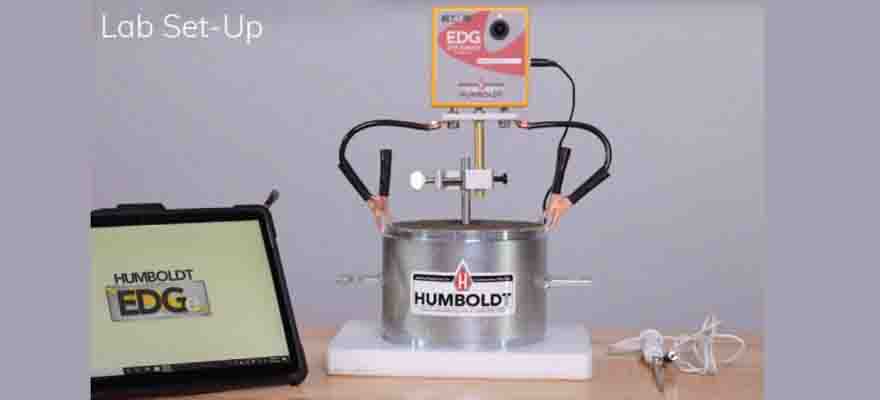Field Testing Equipment: How Suppliers Are Tackling Supply Chain Challenges
The global supply chain has faced unprecedented challenges in recent years, leading to delays, increased costs, and shortages across various industries. For sectors relying on field testing equipment—such as construction, geotechnical engineering, and infrastructure development—the disruptions have been especially impactful. The demand for specialized equipment like automatic direct shear test machines, rock testing equipment, and concrete NDT equipment requires suppliers to find innovative solutions to ensure they meet customer expectations. In this article, we explore how field testing equipment suppliers are overcoming these challenges and adapting their supply chains to remain competitive.
The Rising Challenges in Supply Chains for Field Testing Equipment
Field testing equipment is essential for assessing the quality and integrity of materials in civil engineering and construction projects. Whether it’s measuring the density of asphalt with asphalt non-nuclear density gauges or evaluating soil testing equipment in India, these tools play a pivotal role in ensuring safety and structural soundness. However, disruptions in the global supply chain have led to slower delivery times, shortages of raw materials, and higher transportation costs. These issues have compounded the difficulties for suppliers of field testing equipment, who now have to tackle not only logistical challenges but also increased customer demand for faster, more reliable service.
Adapting to New Supply Chain Dynamics
Despite these challenges, field testing equipment suppliers are taking proactive steps to adapt. Many companies have implemented strategic changes to their supply chain management practices, focusing on efficiency and risk mitigation. One key adaptation is enhancing inventory management systems to ensure that stock levels of critical equipment, such as vibration monitoring equipment and pile integrity testers, are maintained to meet fluctuating customer demand.
Moreover, suppliers are investing in local manufacturing or sourcing materials from more diverse global suppliers to mitigate the risks associated with international trade. For instance, companies that deal with complex machinery like the rock polyaxial testing system and geotechnical modeling software have been particularly affected by supply chain issues. By working with local manufacturers or shifting production to alternative sources, suppliers can reduce lead times and improve the reliability of their products.
Embracing Technological Innovations to Enhance Supply Chains
To further combat supply chain challenges, field testing equipment suppliers are embracing technological solutions that improve both product quality and service efficiency. One such innovation is the use of slope stability analysis software, which allows engineers to evaluate the integrity of slopes and prevent landslides in construction sites. This software enables suppliers to offer faster and more accurate testing, reducing the need for physical samples and helping to streamline logistics.
Another key area where technology is making a significant impact is in the management of testing equipment. Through the use of GPR surveys and real-time data collection systems, suppliers can monitor equipment performance remotely, ensuring that potential issues are identified before they lead to equipment failure. This proactive approach helps minimize downtime for clients and ensures that suppliers can keep up with the growing demand for field testing equipment.
Building Stronger Supplier Relationships
In the face of ongoing supply chain challenges, collaboration and communication between suppliers and customers are more important than ever. By fostering stronger relationships, suppliers of thrie beam crash barrier and W beam crash barriers can ensure that customers have access to the equipment they need, even during periods of scarcity.
Suppliers have begun to offer more flexible terms, such as extended warranty periods or priority shipping, to their long-term customers. This not only boosts customer loyalty but also allows suppliers to ensure that they maintain strong, mutually beneficial partnerships during turbulent times. For instance, if there is a shortage of certain bond pull-off test equipment or residual ring shear machines, having a good relationship with customers can allow suppliers to prioritize orders and expedite delivery.
Leveraging Global Networks and Diversified Sourcing
Suppliers of field testing equipment are also increasing their reliance on global networks and diversified sourcing. This approach helps them reduce the impact of supply chain disruptions caused by geopolitical issues or unforeseen events, such as the COVID-19 pandemic. By diversifying their supplier base for critical components, such as those used in rock fracture tests and indirect tensile strength of asphalt, suppliers can minimize the risk of shortages and ensure that they have access to alternative sources of materials when needed.
Expanding the Reach of Field Testing Services
Some suppliers are expanding their reach by offering pile foundation testing and other services directly to clients, particularly in remote or underserved regions. By providing on-site testing services, they can bypass the need for transporting bulky equipment and provide quicker, more efficient testing solutions. This approach is especially beneficial for industries such as construction and mining, where quick and accurate data is essential for decision-making.
Conclusion
As field testing equipment suppliers continue to navigate supply chain challenges, their ability to adapt and innovate is crucial to maintaining operational efficiency and customer satisfaction. By implementing better inventory management practices, embracing new technologies, and fostering strong supplier relationships, these companies are not only overcoming supply chain obstacles but are also positioning themselves for long-term success. The focus on diversified sourcing, technological advancements, and on-site services allows them to remain competitive, even in uncertain times. As industries increasingly rely on high-quality field testing equipment, suppliers must continue to evolve and ensure that their customers have access to the essential tools they need to ensure safety, quality, and precision in their projects.






